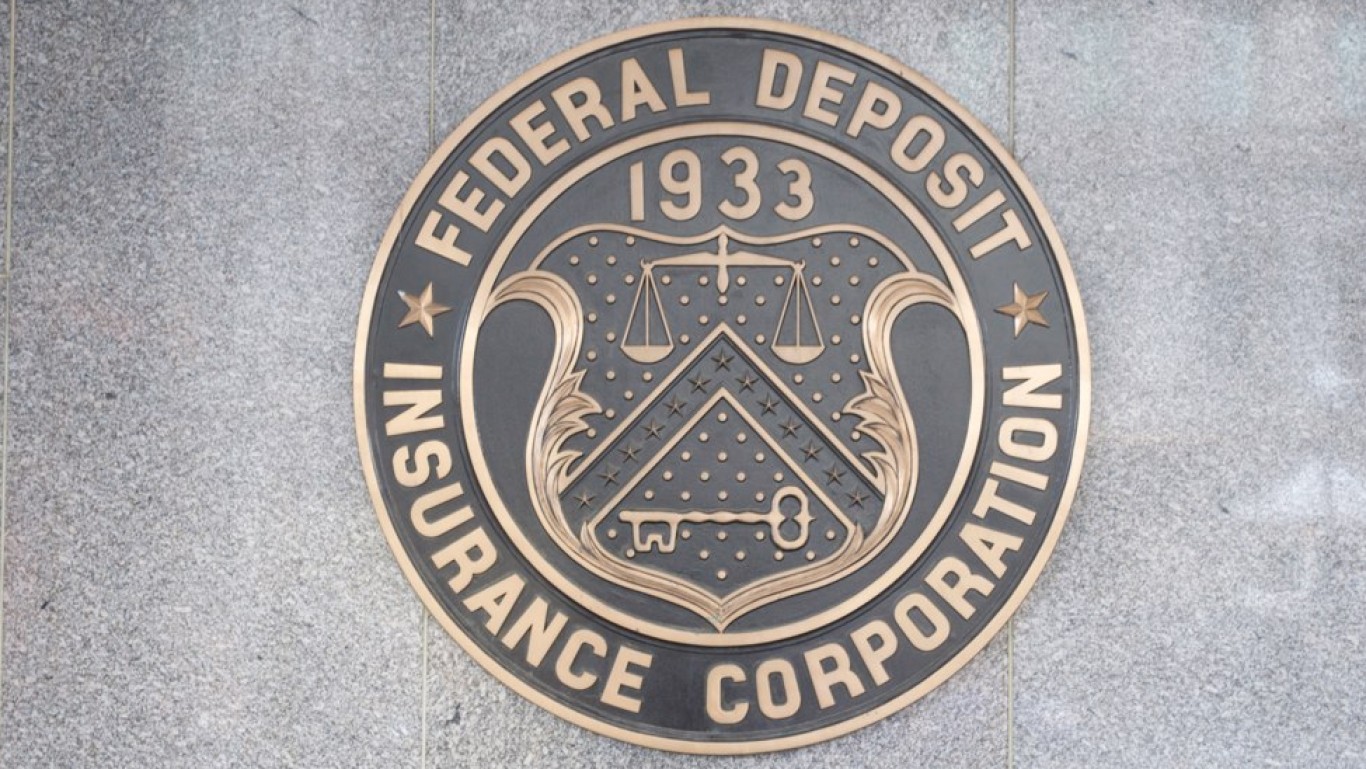Investing
FDIC Left Holding $13B in Hard-to-Sell Mortgage Bonds Post Banking Crisis

Published:

The US government has been grappling with nearly $13 billion worth of hard-to-sell mortgage bonds following the collapse of Silicon Valley Bank and Signature Bank. The bonds, backed by long-term, low-rate loans primarily used for affordable apartment building projects, were part of a $114 billion portfolio that ended up under the control of the Federal Deposit Insurance Corp (FDIC) when it took over the failed banks.
Following the collapse of SVB and Signature Bank, the FDIC tapped BlackRock to liquidate the securities portfolio it kept in receivership. While the asset manager has successfully sold most of the portfolio within a few months, it has failed to offload approximately $12.7 billion in bonds tied to project loans supported by Ginnie Mae.
These securities have been challenging to sell due to several factors. For one, the bonds will probably pay below-market coupons for years. Furthermore, the loans were made before the Federal Reserve’s interest rate hikes, which means they come with high penalties if they are refinanced in their first 10 years and can take decades to mature.
The FDIC has explored alternative options to sell the bonds, including potentially repackaging the debt into new securities. However, restructuring the mortgage bonds presents its own set of complications. While it may help the government offload some risk, it may also leave the FDIC holding onto longer-term securities that are equally hard to sell.
The Financial Markets Advisory group at BlackRock, which the FDIC hired, has experience in managing financial crises. However, the unique characteristics of these Ginnie Mae project-loan bonds have made them particularly challenging to liquidate.
The FDIC’s $12.7 billion hard-to-sell assets represent a substantial volume of bonds comparable to Ginnie Mae’s annual sales. Although the FDIC may consider restructuring the mortgage bonds to attract investors, this approach has limitations.
Combining and redistributing the cash flows of the bonds may create derivative securities that appeal to some investors. However, it does not eliminate the inherent risk associated with the underlying loans. Ultimately, such efforts may shift the risk rather than make it disappear.
Likewise, the FDIC holding these assets until maturity is not a long-term solution. The agency’s primary objective is to maximize returns while ensuring the availability and affordability of housing for low- and moderate-income individuals, but it doesn’t have a mandate to hold investments forever.
In April, the FDIC announced that it had seized First Republic Bank. The federal agency added that JPMorgan, the largest bank in the US and the world’s largest bank by market capitalization, has agreed to purchase most of the bank’s assets and deposits.
The collapse of First Republic came as the first weeks of March saw the downfall of three US banks. After struggling for several months in the wake of the collapse of FTX, Silvergate Bank, a crypto-friendly bank, announced its liquidation on March 8.
Just two days after the collapse of Silvergate, SVB Financial Group, one of the most popular lenders to Silicon Valley tech and growth startups, suffered from a bank run. And on March 12, federal regulators shut Signature Bank down over fears of continued contagion.
This article originally appeared on The Tokenist
Credit card companies are pulling out all the stops, with the issuers are offering insane travel rewards and perks.
We’re talking huge sign-up bonuses, points on every purchase, and benefits like lounge access, travel credits, and free hotel nights. For travelers, these rewards can add up to thousands of dollars in flights, upgrades, and luxury experiences every year.
It’s like getting paid to travel — and it’s available to qualified borrowers who know where to look.
We’ve rounded up some of the best travel credit cards on the market. Click here to see the list. Don’t miss these offers — they won’t be this good forever.
Thank you for reading! Have some feedback for us?
Contact the 24/7 Wall St. editorial team.